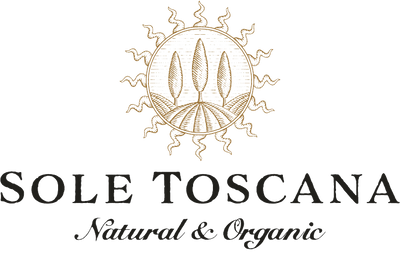If you're on a quest to eat healthier, you probably have some superfoods in your diet. That's great, but are they sustainable? Think about the journey they take to your grocery store, and then to your plate. Sometimes these foods can travel long distances, resulting in high food miles. Also, their nutritional quality might deteriorate from the time in transit. If they undergo freezing, drying, or other preservation methods, this further degrades the nutritional quality. If you'd like to add some superfoods to your diet without the high food miles, here's a list of five that you might find growing at a farm close to home.
1 Aloe
The U.S. currently supplies 60-65% of the world's aloe that's sold in bulk, followed by Latin America at 20-25%. If you live in either of these areas, you have easy access to sustainable aloe. If you live someplace where the weather is mostly warm all year, you may find success at growing it in your back yard.
Throughout history, many cultures have used aloe for its medicinal purposes. Recent research also validates many of its reported health claims.
Aloe vera normalizes blood glucose levels, helps regulate hyperglycemia, and improves the body's absorption of vitamins E and C.
Aloe vera contains 75 active compounds. However, processing can reduce the potency of the final product. Growing your own plant guarantees you a fresh source. If you can't grow it, buy aloe products packaged in dark containers- these protect the contents from light-induced degradation.
2 Avocados
If you live in Central America, California, or Florida, you can enjoy avocados grown close to you.
Avocados have as much (and often more) potassium per gram than bananas. They also contain healthy monounsaturated fat that enhances the absorption of other nutrients, especially fat-soluble lycopene and beta carotene, which promote healthy skin. Do you need more reasons to buy this superfood?
3 Sweet potatoes
When doing grocery shopping, go for potatoes with orange flesh and coppery skin.
Apart from vitamin A, sweet potatoes have lots of vitamin C and B6, and minerals like manganese, potassium, copper, calcium and iron. Sweet potatoes carry seven grams of fiber per cup, making them a filling food that also helps with bowel movements.
You'll find sweet potatoes in warm areas such as North Carolina, Mississippi, and Louisiana. They don't require lots of fertilizer or irrigation to do so, making them a relatively sustainable crop to produce.
Try adding this superfood to your life and watch the health benefits roll in.
4 Spirulina
If the idea of bacteria on your plate freaks you out, consider these benefits first. Spirulina is high in protein, iron, and vitamin B12, which can be low or missing entirely in vegetarian and vegan diets. Its high content of minerals, vitamins, and chlorophyll make it a healthy part of meat-eater diets too.
If you need calcium, but you don't do dairy, spirulina is the answer. It has more calcium than milk! Considering that raising cows is extremely resource-intensive, using spirulina as a dairy-free calcium source is a very sustainable alternative.
China, Hawaii, Chad, India, Israel, Myanmar, and Mexico are some of the countries that have sizeable spirulina farms. Some companies now sell long-term support for spirulina farms you can set up on your roof, porch, or in your backyard.

5 Sprouts
Sprouts are plants that are currently growing. During this stage in a plant's life, it has peak nutritional quality, containing an incredible amount of nutrients and enzymes.
After a few days of sprouting, the plant's vitamin content increases dramatically, sometimes by up to 20 times. However, as soon as you pluck a fruit or vegetable from its roots, the nutritional quality starts to diminish. The produce you buy was probably harvested a few weeks ago, and then probably been on the grocery store shelves for days or weeks. But with sprouts, the plant is at the beginning stage of life, still growing and fresh.
Do you want a steady supply of sustainable sprouts? Then grow them in your kitchen. It's easy! Find some sproutable seeds from your area and get going.
Your health is essential, just like the health of the planet. Buying some exotic superfoods and healthy, local foods is an excellent way to strike a balance.
With love,
The Sole Toscana Beauty Team


